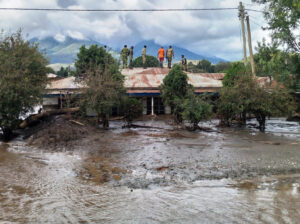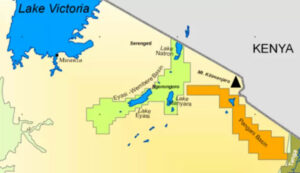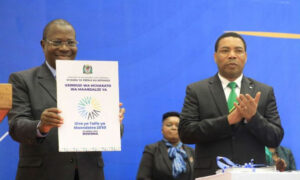by Ben Taylor
New education policy to start imminently, but gradually
The government has announced that it will begin implementing the new Education and Training Policy (2023 edition) in January 2024. The policy, which has been in the making for nearly four years, will introduce some major changes in the country’s education sector. Developed after extensive consultations with stakeholders, it restructures the school system and emphasises 21st-century skills such as communication, collaboration, creativity and critical thinking.
The new policy includes a stronger emphasis on practical education, including technical and vocational training, starting with form one. It also aims to harmonize higher education with national priorities and labour market demands.
According to Educational Circular No 5 of 2023, issued late in the year, the initial phase will start with immediate implementation of the new policy for pre-primary, grade one, and grade three in primary schools, right after the opening of the school year in January 2024. The implementation of the vocational training option for Form One students in select secondary schools that meet the necessary requirements will also commence in January.
Curriculum changes for upper secondary schools (forms five and six) are scheduled to begin in July 2024, the circular further indicates. “Students [already] in primary and secondary schools this year [2023] will complete their studies using the current curriculum. However, those joining Form One in 2024 will experience a dual curriculum scenario, with practical students following the improved curriculum while general education students continue with the existing one,” the circular noted.
One of the most significant changes is a new education structure, denoted as 1+6+4+2/3+3+. In this system, pre-primary education spans one year and primary education takes six years. Lower secondary education (forms one to four) extends for four years. Upper secondary school takes two years for students undertaking general education subjects and three years for students in the vocational training stream. Higher education remains at three years or more, according to the type of course.
Enrolment age adjustments accompany the structural changes, with the pre-primary class admitting five-year-olds and the standard-one class admitting six-year-olds. Primary and lower secondary education, totalling ten years, will be compulsory and free.
The lower secondary education phase introduces two streams: general education and vocational or practical education. At the end of the sixth grade in primary schools – typically around age 12-13 – students will take a national test and decide between general and practical secondary education when entering form one.
General education students will cover six compulsory subjects, while vocational stream students will study one business field and four compulsory subjects. Graduates from the vocational option will be awarded certificates from both the National Council for Technical and Vocational Education and Training (NACTVET) and the National Examinations Council of Tanzania (NECTA).
The improved curriculum introduces new subjects aligned with current needs, according to the circular. Tanzanian history, morals and ethics subjects will be taught in Kiswahili, “so as to foster patriotic and responsible citizens”.
Religion subjects have been given prominence and are to be taught based on age and national values. Additional primary education subjects include geography and environment, arts and sports, and science. For lower secondary education, computer science and business studies have been introduced, with business becoming compulsory for all streams. Higher secondary education sees the inclusion of academic communication in Forms V and VI to enhance graduates’ academic communication skills.
Two new studies point to problems in primary schooling, and offer solutions
Two recently published studies by the KiuFunza initiative [full disclosure: the TA editor works for the same organisation, Twaweza, that runs KiuFunza, albeit in a different department] have laid bare some of the challenges facing primary education in Tanzania, as well as identifying a potential solution.
First, in a 2023 survey of 285 schools in ten regions found that only four out of ten pupils aged 10-14 years could read and understand a simple sentence written in Swahili, and that more than half could not yet read individual words. Further, the survey found that teachers do not recognise these deficits: on average, teachers in grade 2 estimate that 53% of their students can read at grade 2 level, against a pass rate of 20% percent on the independent assessment. And the same study found that one third of primary school classrooms observed by researchers had pupils present but no teacher.
In the second study, conducted between 2015 and 2021, the KiuFunza team found that providing small financial incentives (up to 3.5% of the average teacher’s annual salary) to teachers was a cost-effective way to improve performance. The result was an increase in pupils’ learning equivalent to an extra four months of schooling. They also found evidence that fewer pupils were dropping out and that teachers were demonstrating more frequent positive behaviours towards pupils, and that there was no negative effect on performance either in subjects that lacked teacher incentives and or on the performance of either high- or low-performing pupils who were not closely to the test-score threshold and therefore unlikely to impact on the incentive.
Based on results from 2015-16, the Tanzanian Ministry for Local Government asked Twaweza to test a performance pay programme that can work at larger scale. This follow-up programme focused on practical innovations to reduce unit costs while maintaining quality and trust, and was implemented in 2019-2021. The KiuFunza team found that the learning impact in this version was higher and had lower implementation costs, such that the cost-effectiveness of the incentive program had increased substantially.
Maths and English highlighted as problem subjects in primary schools
Primary school examination results released in November showed that only 34% percent of candidates achieved grade C or higher in the English exam, while 49% achieved a similar grade in mathematics. In contrast, the pass rate for Kiswahili was 88% and the overall pass rate across all subjects was 81%.
“The shortage of competent English teachers is so acute that teachers with limited proficiency are being compelled to teach the subject, especially in public schools. This not only adversely affects the quality of education, but also hinders pupils’ ability to learn and master the language,” Tanzania Education Network (TEN) national coordinator Ochola Wayoga said.
Deputy Minister of Education, Science and Technology, Omary Kipanga, admitted that there was a “deficiency”, which was posing a significant challenge as far as English language skills among pupils were concerned.
“The ability to communicate effectively in English is a valuable skill that opens up opportunities in higher education, employment and international relations,” he said.
He noted, however, that the Education ministry was committed to addressing the issue by implementing strategies meant to attract and retain qualified and competent English teachers. “This includes investing in teacher training programmes, providing professional development opportunities and offering competitive salaries and benefits to incentivise educators with the right skills and competencies to take up and stay in the teaching profession,” he said.
When it comes to maths, Dr Amos Chacha from the Saint Augustine University of Tanzania said a multiplicity of factors was behind the consistently high levels of failure.
“Pupils, teachers, the learning environment, curriculum and schools are all factors in this long-standing issue,” he said, while noting that the trend raises questions as to whether the existing education system can supply graduates who possess the essential skills to enable them to cope with the ever-evolving technological society.
An education stakeholder, Mr Mwakumba Mwemezi, said the major reason behind poor performance in mathematics is the poor teaching methods that teachers use.
“Teachers teach like they are teaching university pupils, they don’t teach children based on their age. That makes the children miss the foundations for learning mathematics and makes them get bad results in their exams,” he said.
“We should not expect a quick change in the performance of pupils in that subject. We need enough and very smart teachers to change the trend,” he added.
Mr Mwemezi hoped, however, that forthcoming curricular changes – see earlier article in this section – will also help in improving the teaching environment for teachers and learning for students.




